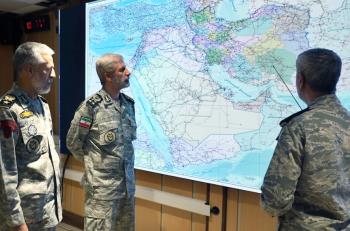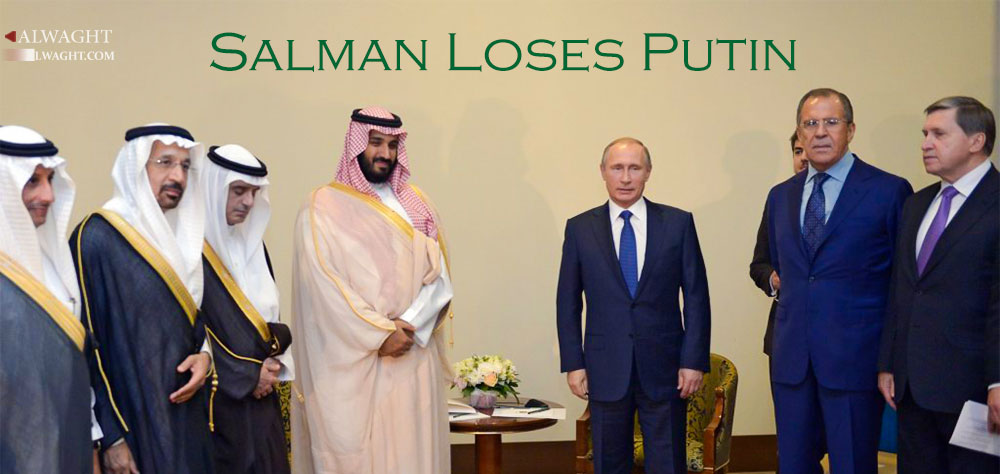Alwaght- The world is changing fast for the Saudis. Saudi Arab gradually loses its once-held place among the Arab and Muslim countries. Even the conventional backers of the kingdom like the US no longer want to offer a full-scale support to the Saudi ruling family.
The costs of the Saudi Arabian foreign policy are now so high that Washington neither in Yemen nor in Syria is ready to accept Riyadh’s plans. The American lawmakers at both the Senate and Congress even for the first time overrode with a unanimous vote a President Barack Obama’s veto to block the way to a bill that allows the families of victims of 9/11 attacks to sue Saudi Arabia for compensation.
The very considerable point about the anti-Saudi bill was the emphatic vote of the Senate members. From 97 senators only one has voted in favor of vetoing the bill. This issue lays bare the fact that the Saudis not only have lost their earlier influence in the US but also from the most important and reliable ally of Washington in West Asia have changed to a most hated regime.
This issue not only is displaying itself in the bilateral US-Saudi ties but also covers Riyadh’s relations with other influential powers and players across the global stage as well as West Asia region. For example, the kingdom’s relations with Russia has been highly tense in the past few years. The Russians argue that the Saudi Arabian measures in Syria, Iraq, and other regional states have given rise to a messy situation in West Asia and so endangered Moscow’s interests. Russia, a country that has regional objectives in stark contrast to those of Saudi Arabia, asserts that the kingdom via a plot has managed to push down the oil prices in global energy markets in a bid to join the West in efforts to foil Russia’s global policies.
This factor has pushed the Russians to decline to be optimistic about the future of relations with the Al Saud family and so seek an alternative to Riyadh for partnership. While Moscow over the past years has tried to boost ties with the kingdom, now it has concluded that Riyadh’s regional policies run counter to the Russian interests. Additionally, the type of Islam that Saudi Arabia promotes actually encourages violence and insecurity, and can influence the Muslim communities of Russia and so send Moscow grappling with waves of terror and bloody guerilla clashes. Therefore, Russia attempts to steer clear of the Saudi Arabian interpretation of Islam religion and instead build ties with rational and moderate sides of the Muslim world. One of these efforts by Moscow is holding the Sunni conference in Grozny, the capital of Chechenia in which Sunni scholars and clerics from around the world were invited but the Saudi Wahhabist clerics were dropped from the list. In this concern, Abdel Bari Atwan, the editor-in-chief of Rai al-Youm news and opinion website, in a note maintained that Grozny conference dealt a heavy blow to Saudi Arabia and its muftis. He continued that the conference in Chechenia was a serious warning to Saudi Arabia to remember its mistakes and review its policy and behavior. The Saudi Arabian muftis must rethink their actions instead of insulting and cursing, according to Atwan. Furthermore, Mohammed al-Sheikh, the prominent Saudi journalist noted on his Twitter account that Grozny conference was held with full supervision of Russian and Iranian operatives, and its leading goal was to eliminate Saudi Arabia from the list of Sunni countries.
In general, holding the conference has made the Saudis furious, and even drove them to react to clerics participated in the Russia-organized meeting. For example, Riyadh expressed strong disapproval of participation of the Al-Azhar scholars. However, the Saudi criticism not only failed to push the Al-Azhar scholars to bow to pressures but also fanned tensions between Cairo and Riyadh. This indicates that the kingdom is even seriously challenged in its relations with the Arab states of the region.
This comes while it seems that driving out Saudi Arabia and replacing it with such countries as Egypt has become a key Russian policy in the region. Russia is very well interested in highlighting Egypt as a moderate state in dealing with the regional issues especially that American-Egyptian ties went chilled after the coup that removed Mohamed Morsi, the former Egyptian president, from power in 2013, and Cairo several times expressed interest in expanding ties with Moscow. Amid such conditions, Egypt can make a more reliable partner for Russia in the West Asia. Actually, Egypt, unlike Saudi Arabia, not only does not challenge the Russian interests regionally and internationally but also in many cases holds common ideas with Russia. Furthermore, Cairo considers Riyadh's interpretation and promotion of Wahhabism as a devastating policies by the kingdom. This Egyptian stance, in turn, is in accord with Russian views on fighting increasing tendency to radicalism in the region.
Therefore, it can be noted that Saudi Arabia is gradually facing a decline of its place in the region. Absence of Western support, particularly the US’, for the Saudi regional policies on the one hand and efforts made by such powers as Russia to disregard the kingdom and replace it with alternative Arab countries like Egypt on the other hand indicate the end of Riyadh's delusion to lead the region and the Muslim world.



























